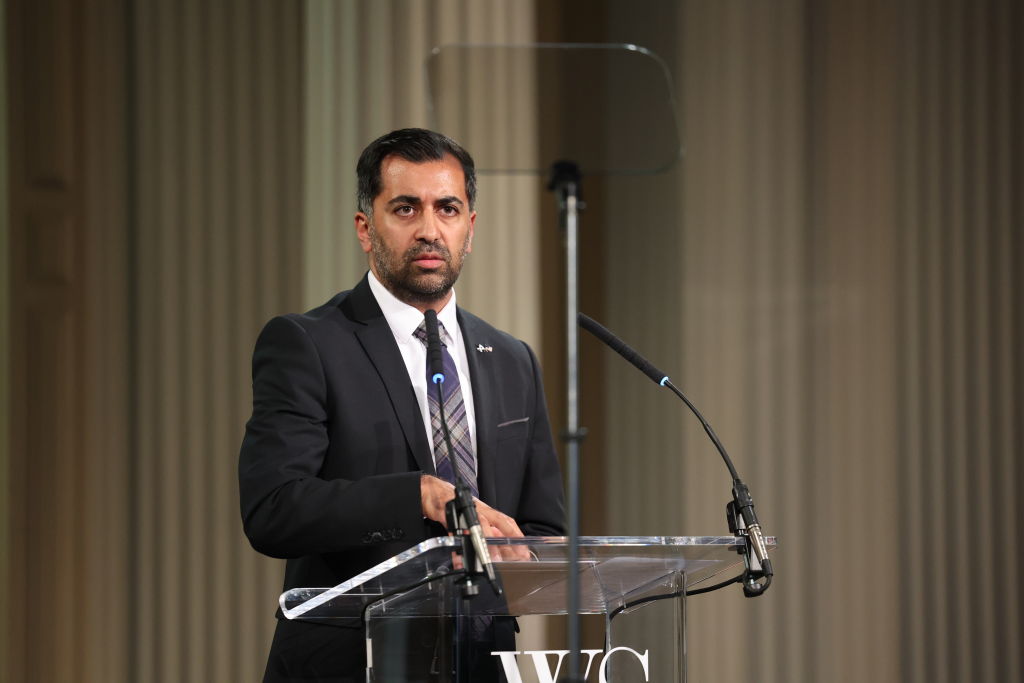Is there any amount of evidence that could convince the ‘public health’ lobby that one of their bright ideas didn’t work? What would it take for them to admit that they failed? It is now five years since the SNP introduced minimum unit pricing for alcohol. It was supposed to be the most effective policy available to tackle alcohol harm — yet figures released today show that alcohol-specific deaths in Scotland have reached a 14-year high. Is it perhaps time for a rethink? Is it time to abandon a policy that has cost Scottish consumers hundreds of millions of pounds and instead start focusing on dependent drinkers who need help?
Not in the slightest, according to the Scottish government. In a press release that played down the scale of the problem, drugs and alcohol policy minister Elena Whitham praised ‘our world-leading minimum unit pricing (MUP) policy’ and cited ‘recent research’ which ‘estimated it has saved hundreds of lives’.
There is indeed ‘wide-ranging evidence’ in the form of an official evaluation from Public Health Scotland. Its 40 separate studies provide very little evidence that the minimum unit pricing policy worked.
Whitham was choosing her words carefully after the Scottish government was forced to modify its claims about minimum pricing in a press release it had published in June. The release claimed that the official evaluation ‘demonstrates’ that ‘our world-leading policy is saving lives, reducing alcohol harms and hospital admissions’. It further claimed:
Wide-ranging evidence drawing on 40 independent research publications showed that MUP has been effective in its main goal of reducing alcohol harm with the reduction in deaths and hospital admissions specific to the timing of MUP implementation.
The press release has now been rewritten with the word ‘demonstrates’ replaced with ‘estimated’ and the paragraph above deleted.
There is indeed ‘wide-ranging evidence’ in the form of an official evaluation from Public Health Scotland. Its 40 separate studies provide very little evidence that the policy worked. It did not lead to fewer A&E attendances. It did not lead to fewer ambulance call outs. It did not lead to less alcohol-related crime. Among the heaviest drinkers there was ‘no clear evidence that MUP led to an overall reduction in alcohol consumption’ although there was evidence of ‘increased financial strain for a substantial minority of those with alcohol dependence’. The heaviest drinking men actually consumed more alcohol after the policy was introduced.
The pandemic made evaluating minimum unit pricing more difficult than it would otherwise have been. Every part of the UK saw a sharp rise in alcohol-specific deaths between 2019 and 2021, partly because heavier drinkers started drinking more and partly because dependent drinkers found it harder to access face-to-face treatment. But Scotland fared worse than England. In England, there were an extra three alcohol-specific deaths per 100,000 people in the Covid years. In Scotland, there were an extra four. Evidence from Wales, which introduced minimum unit pricing in 2020, also suggests that the policy has no effect on the number of people who drink themselves to death — although it does have various negative side effects.
Every piece of hard data indicates that minimum pricing crashed and burned. The only piece of research in the whole evaluation that supports the SNP’s case is a modelling study which looked at ‘what might have happened under the counterfactual situation that MUP legislation was not enacted in Scotland’. This inherently hypothetical research concluded that minimum pricing might have led to 13 per cent fewer deaths than would have occurred had the SNP not introduced their ‘world-leading policy’.
This is the life raft to which the Scottish government clings. Minimum unit pricing has a five-year sunset clause and the government has until next May to prove the policy has worked otherwise it will be ditched. No one seriously believes that minimum unit pricing will be abandoned. This is about politics, not evidence, and the SNP government still has a majority. But the party has to pay lip service to the idea of evidence-based policy. The modelling study is not consistent with the rest of the evaluation and it sits very uneasily with alcohol-specific deaths hitting a 14-year high — but it is all they have.
Consequently, the Scottish government has droned on about a single, highly contestable study while ignoring the totality of the evidence. According to a report in the Sunday Times this weekend, civil servants put pressure on Public Health Scotland to do the same. The June press release was so shamelessly one-sided that the Conservative MSP Dr Sandesh Gulhane wrote to the UK Statistics Authority about it. It takes a lot to make the Scottish government admit it was wrong so getting them to amend the press release is quite an achievement — even though the damage has already been done.
But the SNP still won't admit that the policy has failed and nor will their cheerleaders in 'public health'. Scotland's state-funded temperance pressure groups are calling for the price to be increased. Dr Alastair MacGilchrist, chairman of Scottish Health Action on Alcohol Problems, said today: 'It is vital that policies such as MUP remain in place to continue to reduce alcohol-related harms.'
Continue?! Minimum unit pricing has failed spectacularly and yet its advocates will not hear a bad word about it. If this is a world-leading public health policy, what do the mediocre ones look like?





Comments
Comments will appear under your real name unless you enter a display name in your account area. Further information can be found in our terms of use.